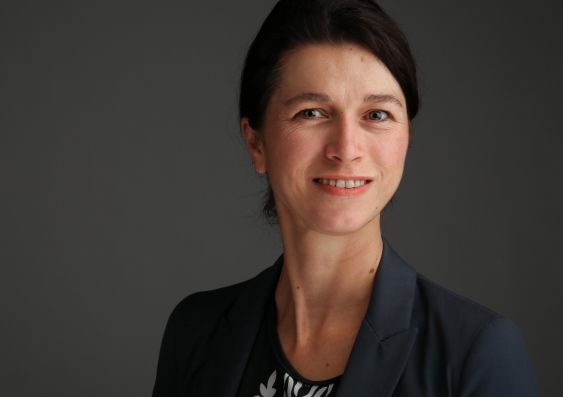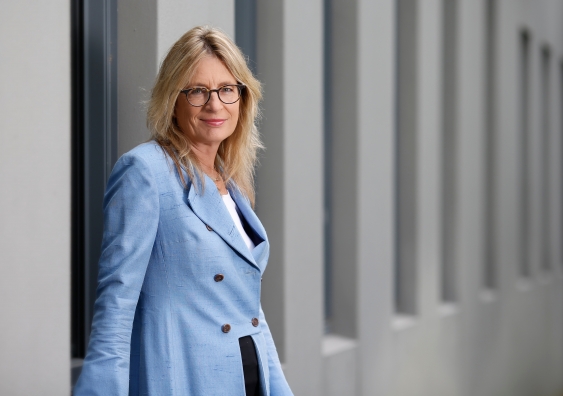UNSW awarded $25m in latest health and medical research grants
31 UNSW projects and fellowships funded by the National Health and Medical Research Council have received more than $25 million in the latest round of federal government funding.
31 UNSW projects and fellowships funded by the National Health and Medical Research Council have received more than $25 million in the latest round of federal government funding.

Lucy Carroll
UNSW External Communications
9385 8732, 0402 005 319
l.carroll@unsw.edu.au
Programs that provide same-day testing for infectious disease, better health care for children with neurodevelopmental problems and the development of cancer treatments that target copper in tumours are some of the UNSW projects that will share more than $25 million in NHMRC funding.
In his latest funding announcement, Minister for Health Greg Hunt committed $192 million in NHMRC grants for 320 projects across Australia on medical and scientific research into research projects to improve the health of Australian patients through new treatments and support, tackling areas of obesity, mental health and cardiovascular disease.
More than $25 million was allocated to UNSW researchers across Career Development Fellowships, Early Career Fellowships, Research and Practitioner Fellowships, Partnership Grants and Centre for Research Excellence funding.
Professor Nicholas Fisk, UNSW Deputy Vice-Chancellor (Research), congratulated the recipients.
“UNSW researchers have been recognised for their exceptional contribution to health and medical research in Australia and their ongoing commitment to overcoming major health challenges though cutting edge research to improve health care,” Professor Fisk said. “UNSW did particularly well in the flagship Centres of Research Excellence, with the most (three out of 16) awarded nationally. Our researchers received a total of $25.5 million, the third-highest in the Group of Eight.”
Professors Rebecca Guy and John Kaldor from The Kirby Institute, based at UNSW, will receive $5 million in funding to improve the control of infectious diseases in the Asia-Pacific region.
Professor Guy, Head of the Surveillance Evaluation and Research Program at the Kirby Institute, will lead a Centre for Research Excellence with collaborators from UNSW and other research organisations developing immediate point of care tests for infectious diseases of global importance, including HIV, hepatitis C, tuberculosis, HPV and STIs. It will take place across 300 primary health care services in Australia, Papua New Guinea, Vietnam and Indonesia.

The Kirby Institute's Rebecca Guy.
“Our previous work in this area has shown that POC testing in primary care works to improve infectious disease diagnosis in remote Aboriginal communities in Australia,” said Professor Guy. “This project will break down barriers to treatment access, ultimately leading to major reductions in the associated illnesses, and improvements in the overall health of these communities.”
Professor Kaldor, Head of the Kirby’s Public Health Interventions Research Group, received funding to establish the Australian Centre for the Control and Elimination of Neglected Tropical Diseases. The Centre will accelerate the control and the elimination of key neglected tropical diseases, focussing on seven countries in the Asia-Pacific region.
Professor Helen Christensen, Director at the Black Dog Institute and a UNSW professor of mental health, will receive almost $2.5 million to establish the Centre of Research Excellence in Suicide Prevention: CRESP II. The Centre will build on the substantive body of work undertaken during the CRE’s first iteration, in particular the development of Australia’s first systems approach to suicide prevention. Phase II will focus on taking findings to scale, leveraging technology to ensure maximum impact in the face of Australia’s vast geographical landscape.

Scientia Professor Helen Christensen. Photo: Quentin Jones
UNSW early and mid-career researchers were also recipients of major grants, with nine Early Career Fellowships and six Career Development Fellowships going to researchers in the faculties of Medicine, Science and Engineering.
Associate Professor Susan Woolfenden, from UNSW Medicine and Sydney Children's Hospital Randwick, received a Career Development Fellowship to establish a health inequities research program for children with neurodevelopmental problems ranging from language delay to cerebral palsy.
“Families with the least financial and social resources are most likely to have children with neurodevelopmental problems,” says Associate Professor Woolfenden. “They are also the least likely to receive services to diagnose and treat their children. This funding will support my work with children with neurodevelopmental problems from Indigenous, socioeconomically disadvantaged and culturally diverse communities, which has supported changes in policy and practice in NSW.”
Dr Orazio Vittorio from the Children's Cancer Institute at UNSW has received funding for targeting copper homeostasis in aggressive childhood tumours.
“My vision is to develop effective cancer treatments to target copper in tumours using sophisticated new approaches, with a better understanding of cancer biology. The aim of this fellowship is to make contributions to develop targeted drugs for improving survival and quality of life of neuroblastoma patients,” said Dr Vittorio.
Early Career Fellowship recipient Dr Nusrat Homaira will use funding for her project to improve health care delivery services for children with asthma through an enhanced influenza vaccination strategy.
“Influenza is the one of the main infectious causes of unscheduled hospital presentations in asthmatic children,” says Dr Homaira. “My study will examine the impact of a school-based influenza vaccine delivery service on improving influenza vaccine uptake and reducing health care utilisation in Australian children with asthma and potentially act as a model for other chronic lung conditions.”
A full list of grant recipients is available on the NHMRC website: www.nhmrc.gov.au
Other recipients include: